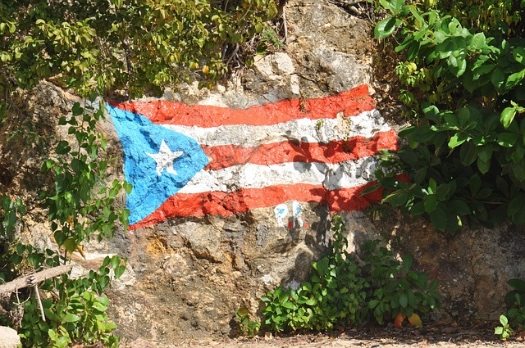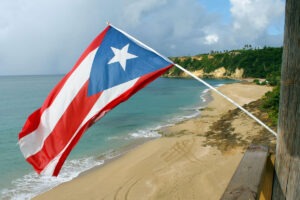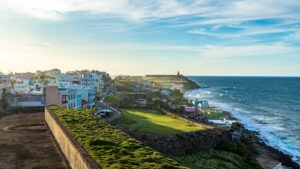
June 7, 2017; The Hill
NPQ has reported on the government-funding crisis in Puerto Rico. The territory’s government is hoping that an upcoming vote on statehood will help the island better deal with its economy by giving it more local control over taxes and business relationships, including dealing with its creditors. However, the upcoming vote is controversial both in Puerto Rico and in Washington.
The revised 2017 referendum question includes three options: statehood, “free association/independence,” or the current territorial status. The initial ballot didn’t give voters the option of continuing the status quo. Objections to this caused the U.S Justice Department to order the territory to revise the ballot.
A 2012 referendum was the first time that a majority expressed a desire that their territorial status be changed and that Puerto Rico petition the United States to be admitted as the 51st state. However, there were challenges to the validity of the results. A constituent assembly proposed by then-President Barack Obama to resolve issues was never held.
There are concerns that Puerto Rico’s Democratic voting history will make Republican lawmakers reluctant to approve a statehood petition should the island’s representatives present one. Statehood supporters remind us that similar political party assumptions about Alaska and Hawaii in 1959 turned out to be in error. The national GOP platform has supported Puerto Rico statehood for decades, including in 2016, and President Trump has “indicated openness to the idea,” according to the Hill.
Sign up for our free newsletters
Subscribe to NPQ's newsletters to have our top stories delivered directly to your inbox.
By signing up, you agree to our privacy policy and terms of use, and to receive messages from NPQ and our partners.
Anti-statehood forces and the territory’s independence party are calling for a boycott of the election. According to recent reports, 72 percent of voters plan to vote, and 20 percent plan to boycott. Statehood opponents claim that a vote for statehood by fewer than 50 percent of all residents will be invalid.
On the other hand, others object to how the statehood vote has been framed.
Sen. Roger Wicker (R-MS) spoke out against it, arguing it “unfairly stacks the deck in favor of statehood.”
He penned a letter to Attorney General Jeff Sessions objecting to the ballot’s title, “Plebiscite for the Immediate Decolonization of Puerto Rico.” Wicker said that Puerto Rico has not been a colony since its annexation from Spain in 1898.
Will Congress even receive a statehood delegation from Puerto Rico, much less schedule a vote on statehood, assuming statehood is approved by voters and the territorial governor appoints a delegation? We don’t know. The Hill reports that House Speaker Paul Ryan’s (R-WI) office did not reply to the organization’s request for comment.—Michael Wyland












